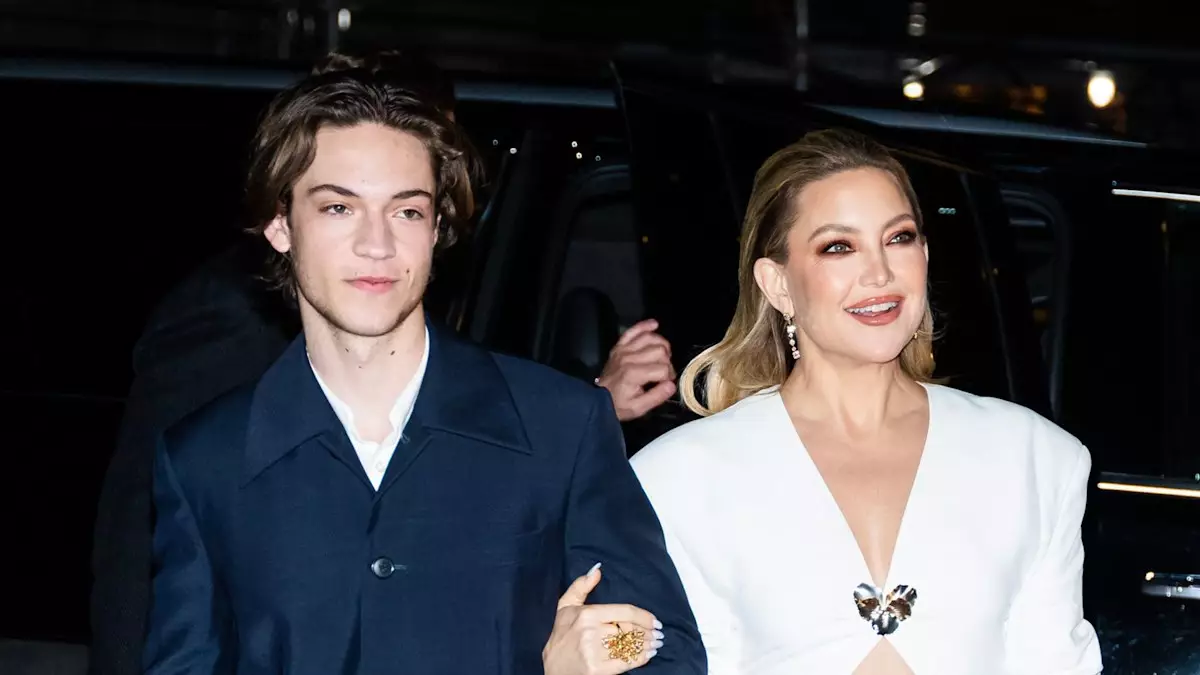Kate Hudson’s journey into motherhood began at the tender age of 24 when she gave birth to her eldest son, Ryder. This early entry into parenthood not only shaped her outlook on life but profoundly influenced her relationship with her children. As she reflected on the early years, she described a unique mother-son dynamic, one characterized by growth and mutual understanding. Hudson’s narrative is compelling, showcasing how the roles of parent and child can evolve over time. As Ryder transitioned into adulthood, Hudson found herself sharing experiences and perspectives with him, breaking down the traditional barriers of parent-child communication. This evolution symbolizes a paradigm shift in parenting—one that embraces mutual respect and dialogue rather than hierarchy.
The Gift of Letting Go
In a candid conversation on the “Not Gonna Lie” podcast, Hudson imparted wisdom that many parents desperately need to hear: the importance of allowing children the freedom to explore life independently. Her assertion, “Let your kids go,” embodies a revolutionary approach to parenting that departs from the more common instinct to control and protect. Hudson emphasizes that clinging too closely can create an undercurrent of resentment, driving children away rather than fostering closeness. It’s a radical notion in a world where many parents feel the weight of responsibility to constantly guide and oversee. The notion of facilitating independence is liberating for both parties, a philosophy that is not innate but requires deliberate effort and mindfulness.
The Realities of Growing Up Together
Hudson’s experience of “growing up together” with Ryder opens a broader dialogue about the evolving relationship between parents and children in the modern era. With each subsequent child—Bingham and Rani—she fine-tuned her approach, seemingly moving closer to a balance between guidance and freedom. This philosophy underscores the notion that understanding and emotional maturity do not solely emerge from age but rather through shared experiences. The authenticity of their conversations signals a departure from the monologue of parental advice, fostering a dialogue of shared life lessons. Hudson’s reflections reveal the incredible potential for children to teach their parents as much as parents teach their children.
Navigating the Challenges of a New Chapter
In 2023, as Ryder embarked on a new adventure to university in New York, Hudson faced the poignant reality of empty nest syndrome. She candidly acknowledged the difficulty of this transition, outlining the emotional void felt in her daily routines. The absence of Ryder’s familiar presence created a space that was both uncomfortable and transformative. However, Hudson manages to turn this challenge into an opportunity for personal growth. This speaks to a broader truth about parenting: that it is not merely about raising children but also about continually redefining oneself in the context of their growth and independence.
Building a Support Network
Recognition of shared experiences in parenting can be life-affirming, as Hudson illustrated through her connection with fellow mothers Gwyneth Paltrow and Reese Witherspoon. The solidarity amongst mothers grappling with their children’s independence highlights the universal nature of these challenges. Their shared moments encapsulate the idea that parenthood is not a solitary journey but rather a collective experience enriched by community and mutual support. Hudson’s acknowledgment of these relationships serves as a reminder of the importance of solidarity among parents, encouraging them to lean on one another during challenging transitions.
The Cycle of Giving Back
Hudson’s comments about the reciprocal nature of parenting provide a profound insight: the commitment and energy invested in children can yield unexpected rewards as they mature. When Ryder offered his perspective on her busy lifestyle, it encapsulated the beauty of this cycle—one in which children can become sources of wisdom and support in return. This realization is empowering, validating the idea that efforts in parenting are not one-sided but instead create a nurturing ground for mutual understanding and respect.
In a world that continually shifts the landscape of parenting, Kate Hudson’s experiences reflect the evolving nature of these relationships, advocating for freedom, independence, and shared growth.

